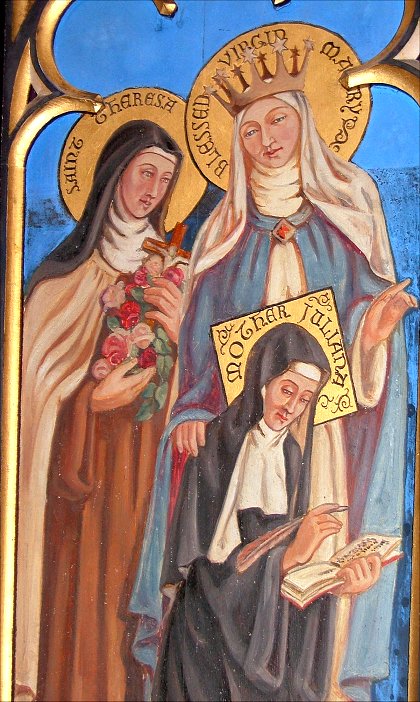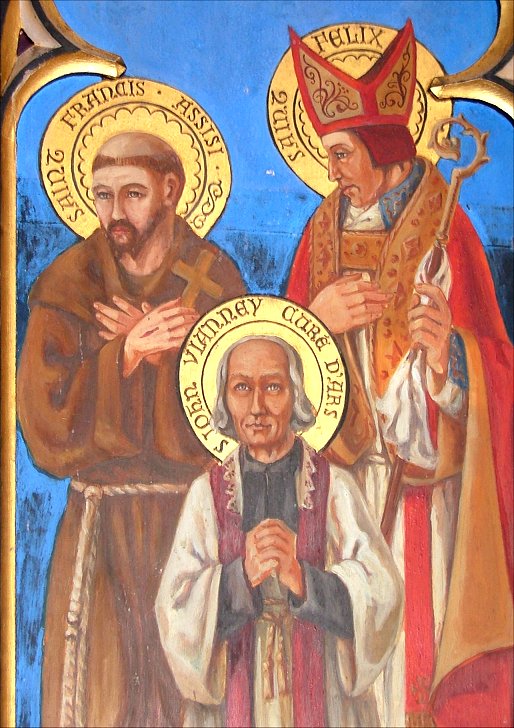
Of all the places Our Lady could have chosen, she decided to come to East Anglia. Over nine centuries ago, a noble woman, living in the gently rolling hills of north Norfolk had a vision of Our Blessed Mother, who told her to build a replica of the house where the Angel Gabriel appeared to her, announcing the conception of Our Lord.
We were reminded in a commentary at Mass today, that this ancient devotion to Our Lady, which is strong here in her Dowry, that as her statue was burned during the Henrican reformation, they were not only burning Our Lady, but they were also burning Our Lord. At the foot of the cross, Christ willed that she be our mother, and we be her children. Mary leads us to Christ, for without her, He could not have been born unto us. Indeed, it is no bad thing asking her intercession, for we cannot go wrong with Christ's own mother on our side.
One cannot deny the inspirational value of Mary's 'fiat', her 'yes' to God's will. Every Christian should regularly reflect on this story, in order that they may come to a better understanding of God's will for us, and the vocation he has bestowed upon us, so that our own 'yes' may be forthcoming.
As seminarians, we regularly ask ourselves, 'is this God's will for me?' But this question is not reserved to those who feel called to a priestly or religious life, it is a question for everyone, for each of us has a divine vocation God is asking us to fulfill. Should I get married to this person? Am I called to the single life? Does God will that I be a lay missionary? Am I to offer my working life to the service of the poor? Can I use my skills to further the kingdom of God?
Here at Oscott, we are reminded of our quest to find our true vocation with our regular recitation of the Angelus. Blessed Mother, pray for us, that we, like you, may be able to echo your prayer to Our Father in heaven:
behold the handmaid of the Lord, be it done unto me according to thy word.














